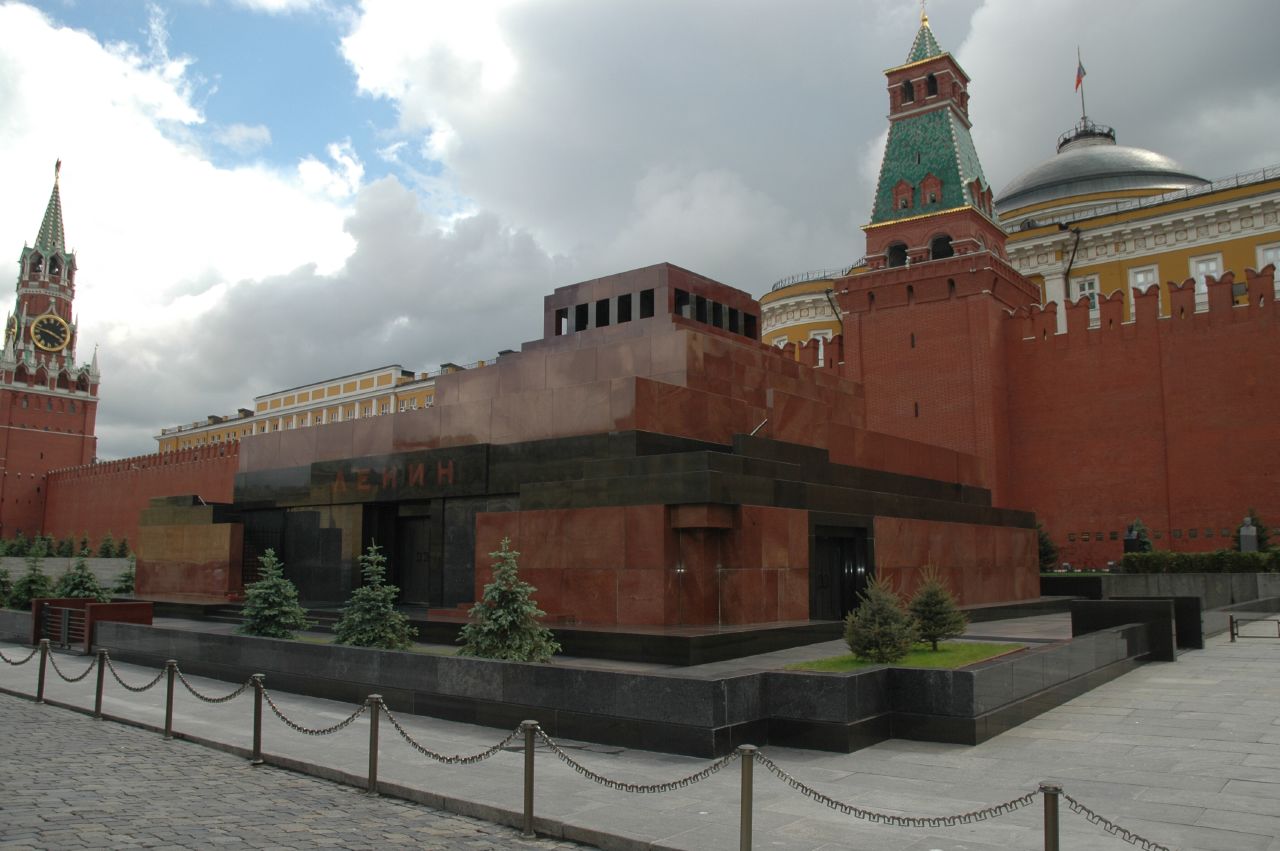
On March 12, the second Sunday of Great Lent, a call for the removal of Lenin’s body from Red Square was heard in all parishes of the Russian Orthodox Church Outside of Russia.
The call came in the reading of an epistle for the one hundredth anniversary of the appearance of the “Reigning” Icon of the Mother of God, blessed by His Eminence Metropolitan Hilarion of Eastern America and New York.
The epistle begins:
This year, the entire world, especially we all, will remember the great tragedy of the 20th century which disrupted the fates of millions of people. This calamity literally touched the lives of every Russian family, wherever they may have been. We remember now the hundredth anniversary of the bloody and destructive revolution in Russia. As a result of the betrayal of the government and military leadership, the Tsar was forced to abdicate the throne, which led to unavoidable consequences: the demise of the state, the martyric death of the Tsar himself and of his Most August Family, the brutal internecine war, and the unprecedented persecution of the Orthodox Church and of faith in God in Russia.
However, the Russian people knew God’s grace at that time, as the epistle notes. Also in 1917, “on the very day of the abdication of the Anointed of God, Tsar Nikolai Alexandrovich, March 2/15, 1917, the miraculous ‘Sovereign’ Icon of the Mother of God was revealed to our people as a sign that the Most-Pure Queen would not abandon her care for the suffering Russian land, which from days of old was known as the House of the Most-Holy Mother of God.” Moreover, the patriarchate was restored in Russia, with the enthroning of Patriarch St. Tikhon on the feast of the Entrance of the Theotokos, Nov. 21/Dec. 4.
The epistle then encourages all Russian to return to their roots and understand that it was the neglect of faith that led to the tragic events of 1917. “We must not under any circumstances justify the actions of those responsible for the deadly revolution,” the Synod writes, therefore calling for the removal of Lenin’s body from Red Square, as well as all other monuments dedicated to him, and the changing of city and street names named after the ruthless tyrant: “A symbol of reconciliation of the Russian nation with the Lord would be to rid Red Square of the remains of the main persecutor and executioner of the 20th century, and the destruction of monuments to him. They are all symbols of catastrophe, tragedy, and of the destruction of our God-given Sovereignty. The same applies to the cities, oblasts and streets which are deprived of their original historic names.”
Others have made the same call, including the venerable Elder Iliy (Nozdrin) of Optina Monastery:
He is not a leader, but a destroyer, a traitor, and a murderer. Russia has suffered horribly because of him. He orchestrated the genocide of the Russian nation and of the Russian people. Ten million people were killed thanks to him, without a trial or investigation. The emperor was murdered by the machinations of this Ulyanov—a villain in the fullest sense of the word. He is a hater of the Russian people. He said with his own burring tongue that if only ten percent of the Russian people would remain then he succeeded. He is a villain of villains. He should have been long ago thrown out of the mausoleum. Through him the Lord does not grant us the full development of our Fatherland, while he is not yet carried out, not thrown out of the threshold of the center of our Russia—Moscow.
In 2015, Russian State Duma Deputy Ivan Konstantin Sukharev, a member of the Liberal Democratic Party of Russia (LDPR), introduced a bill to the State Duma, calling for a resumption of the debate on the matter. The bill also called for the elimination of the cemetery where prominent Bolshevik and Soviet officials are buried near the Kremlin wall in Moscow.
For its part, the Synodal Department for Relations of the Church with Society and Media of the Moscow Patriarchate has declined to comment, saying, “We’re not going to comment on it now … because it is a letter addressed to the outside world, not within the Church. Therefore its meaningless to comment.”
The discussion on removing and reburying Lenin’s body and converting his mausoleum into a museum is periodically renewed in Russian society. Department head Vladimir Legoida earlier commented that the issue of Lenin’s mausoleum is not very important for the Russian Church, and “will be resolved naturally with time, in a peaceful manner.”